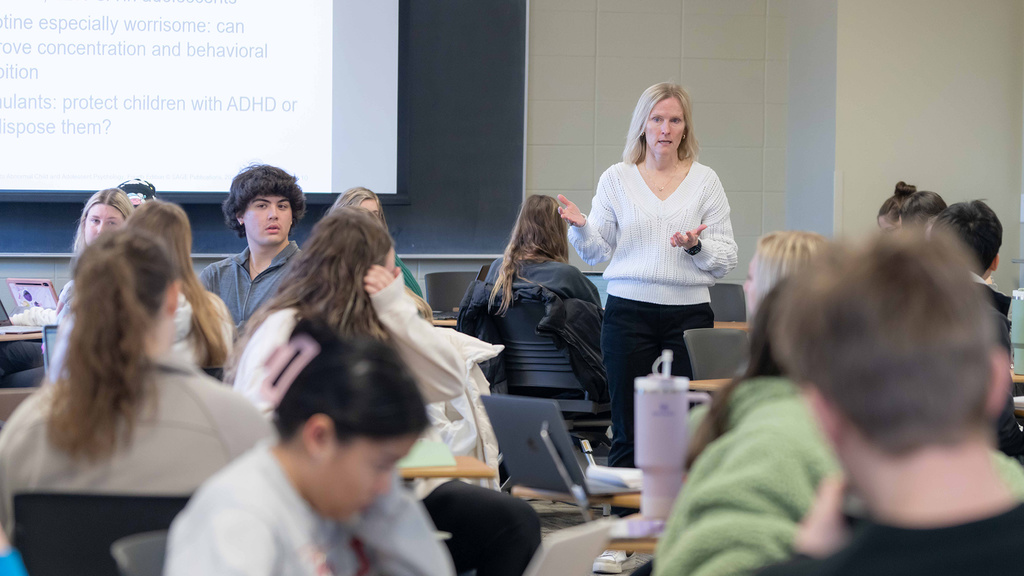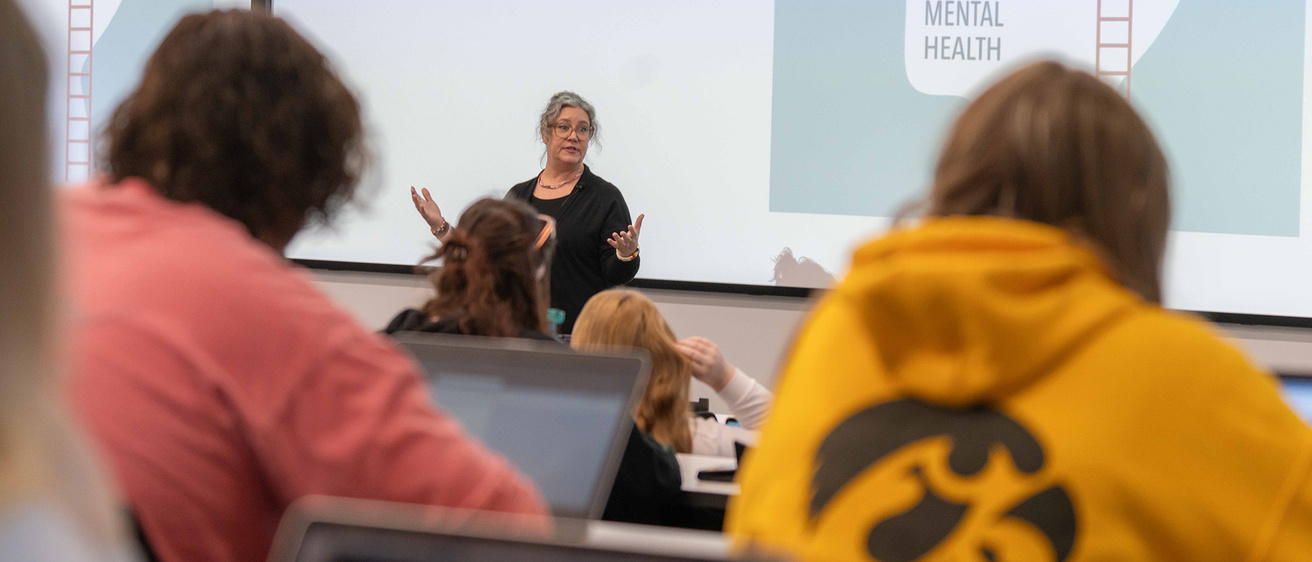The College of Education’s new Bachelor of Arts in Counseling and Behavioral Health Services (CBHS) degree advances training and introduces students to the world of counseling and the helping professions.
Counseling and Behavioral Health Services is an innovative, non-licensure major that is intended to leverage College of Education faculty expertise in counseling and human behavior to prepare students for entry level helping positions in nonprofit agencies, government agencies, community centers, clinics, and service navigation programs.
Students will complete a 39-semester-hour curriculum in the major, pairing a significant emphasis in counseling skills with courses in applied counseling, psychology, ethics, career development, and introductions to and theoretical foundations of human services fields.
Fast Facts
- Introduces students to the world of counseling and the helping professions
- Prepares undergraduate students for entry level, non-licensure positions in the behavioral health workforce
- Provides a strong foundation that can be applied toward counseling/mental health related graduate studies
Program Resources
Learning Objectives
- Recognize and define the concepts and functions of the helping professions, and their respective professional environments.
- Demonstrate basic interpersonal communication, leadership, and ethical problem-solving skills used in the helping professions.
- Illustrate how social, economic, cultural, and other contextual factors affect behavioral health care access and disparities.
- Demonstrate awareness of the role of advocacy in the behavioral healthcare system and behavioral health policy environment.
- Exhibit critical thinking, problem-solving, and written and oral communication skills to strategically address complex issues and formulate innovative, holistic, and sustainable solutions.
Core Courses
All counseling and behavioral health services students must complete the following courses:
- PSQF:1101 Introduction to the Helping Professions
- PSQF:2115 Introduction to Counseling Psychology
- CSED:1102 Helping Skills for Community Settings
- PSQF:XXX Applied Theories of Counseling and Change
- PSQF:1103 Introduction to Assessment in Counseling and Behavioral Health
- PSQF:3104 Multicultural Counseling and Psychology
- PSQF:3215 Applied Health Psychology
- CPH:4210 Public Health Policy and Advocacy
- EDTL:4950 Behavioral and Social Interventions
- CSED:4953 Experiential Learning Course: Research, Internship, Study Abroad, Service Learning)
Electives ( 9 s.h.)
May include, but not limited to:
PSQF:2116 | Applied Child and Adolescent Psychology | 3 s.h. |
PSQF:3115 | Sports Psychology | 3 s.h. |
CSED:4178 | Microcounseling | 3 s.h. |
CSED:4140 | Foundations of Leadership for Community Agencies | 3 s.h. |
PSQF:4162 | Introduction to Couples and Family Therapy | 3 s.h. |
CSED:4176 | Child Abuse: Assessment, Intervention, and Advocacy | 3 s.h. |
CSED:4195 | Ethics in Human Relations and Counseling | 3 s.h. |
CSED:4174 | Positive Psychology | 3 s.h. |
HHP:2280 | Cultural Competency and Health | 3 s.h. |
SSW:1200 | Mental Health Across the Lifespan | 3 s.h. |
MGMT:3500 | Non-Profit Organizational Effectiveness I | 3 s.h. |
MGMT:3600 | Non-Profit Organizational Effectiveness II | 3 s.h. |
CPH:1400 | Fundamentals of Public Health | 3 s.h. |
CPH:1600 | Public Health Science | 3 s.h. |
CPH:1800 | Social and Psychological Determinants of Health | 3 s.h. |
CPH:2400 | The US Health System in a Global Context | 3 s.h. |
CPH:3200 | Public Health as a Public Good | 3 s.h. |
CPH:3500 | Global Public Health | 3 s.h. |
Focus Areas
Addictions
Human Services Management
Corrections
Case Management
School Mental Health
Community Advocacy
“A distinctive aspect of this program is that it will offer a number of clinical and human service oriented specialties that will add unique value for the students.”
Noel Estrada-Hernández, professor of Rehabilitation Counseling, DEO of the Department of Counselor Education, and co-developer of the CBHS program.
Faculty
CBHS is comprised of faculty from the College of Education’s Counseling Psychology, School Psychology, and Counseling Education and Supervision programs. To see associated faculty, please: Visit Faculty Listing.
Admissions and Application
Students may be admitted to the major through Direct Admission, Regular Admission, or Transfer Admission.
Direct Admission is designed for first-year students applying to Iowa for the fall semester. Applicants who present an ACT composite score of 21 or higher (waived for fall 2022) and a final high school GPA of at least 3.0 are eligible for Direct Admission into the Counseling and Behavioral Health Services major.
Regular Admission is available to students who have completed a minimum of 12 s.h. of graded course work at the University of Iowa or another accredited institution of higher education, including community colleges, and who have a UI cumulative GPA of at least 2.50.
Transfer Admission is available to students who have a cumulative GPA of at least 2.50 on a minimum of 24 s.h. of acceptable graded credit earned after high school graduation.
For information about the admission and application process, please contact martin-kivlighan@uiowa.edu.
News

College of Education launches new undergraduate counseling major
New Counseling and Behavioral Health Services degree designed to for undergraduate students who want to develop a foundation in helping processes and human behavior.
Contact Us
Martin Kivlighan, Program Director
319-335-5333
martin-kivlighan@uiowa.edu
